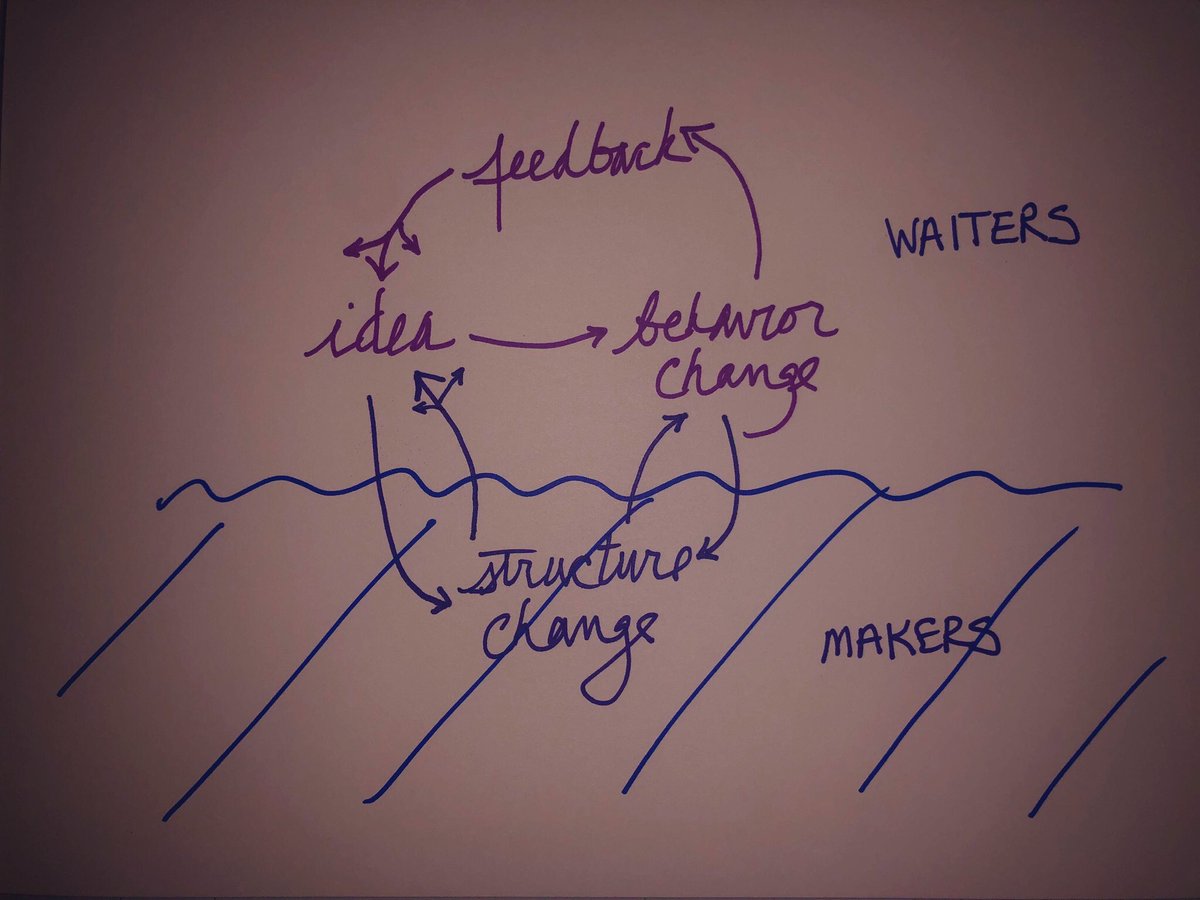
Programmer, coach coach, artist, pokerist, singer/guitarist. Learning to be me. Chief Scientist at Mechanical Orchard. Mastodon: @kentbeck@hachyderm.io
5 subscribers
How to get URL link on X (Twitter) App


 The cliche product/engineering split has someone with an idea waiting for the behavior of the system to change so they can analyze feedback. These are the “waiters” (seems enough time has passed to reuse this word).
The cliche product/engineering split has someone with an idea waiting for the behavior of the system to change so they can analyze feedback. These are the “waiters” (seems enough time has passed to reuse this word).